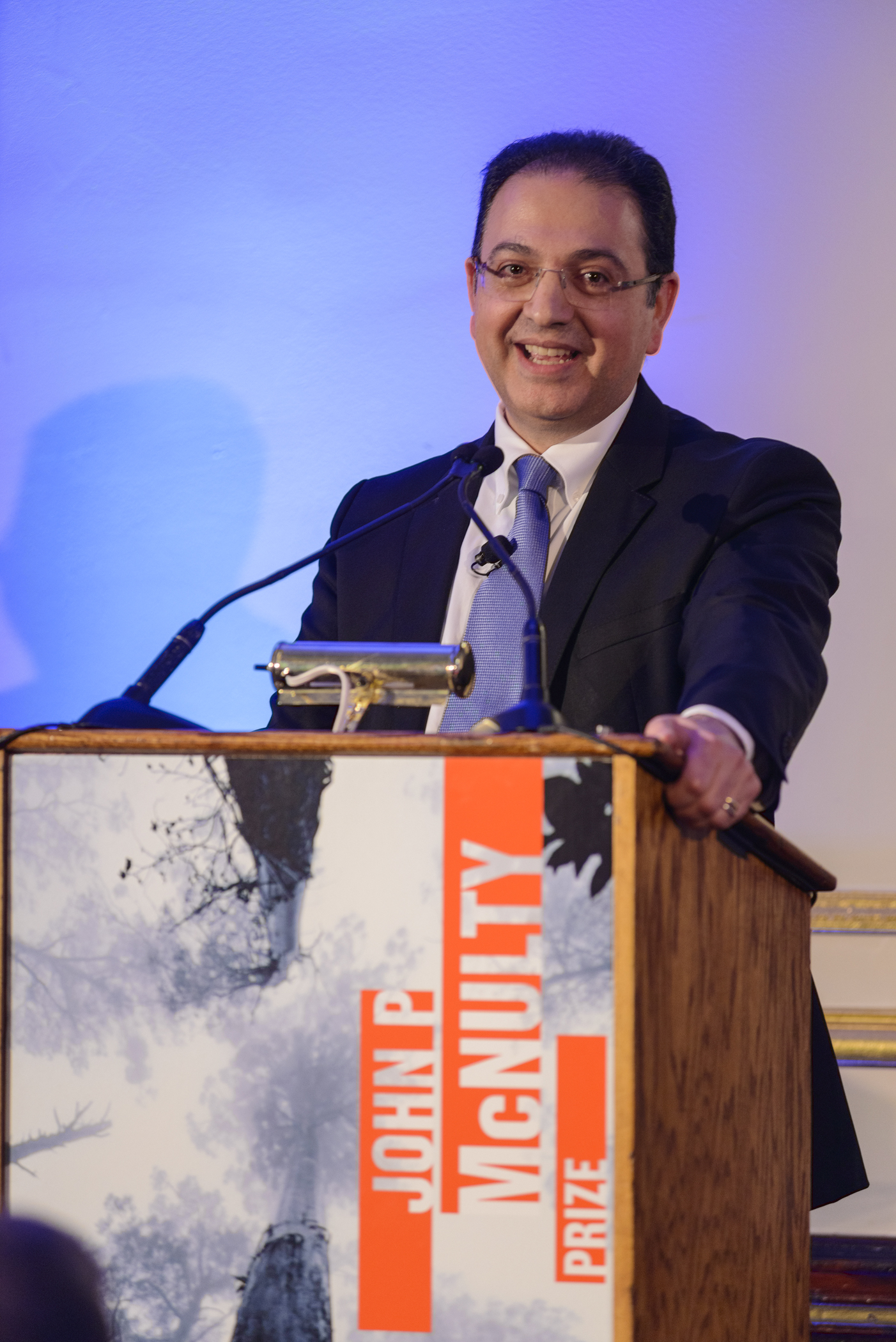An Interview with Mehrdad Baghai: Starting at the root to eradicate hate
What does a society oriented toward collective action look like and how do we get there?
On November 7th, we celebrated the 11th annual John P. McNulty Prize Winner, High Resolves, founded by Mehrdad Baghai. Here are some of the best insights from the conversation between Aspen Institute President and CEO, Dan Porterfield and High Resolves Founder and CEO, Mehrdad Baghai at the 2018 McNulty Prize Celebration.
This material has been edited and adapted for publication.

Dan Porterfield: Is there a secret sauce to High Resolves?
Mehrdad Baghai: One of the most important things is shifting the mental models that young people maintain about abstract concepts like justice. The challenge is how to actually do that.
Imagine 60 kids walk into a gym and we're trying to get them to think about justice. We have the students examine images of dental hygiene across the planet. On one end you've got someone brushing with a twig, or a toothbrush shared by the whole family, and all the way at the other end is a Braun Ultrasonic 6000. The question for students is, “where would you draw the line if you didn't know who you were going to be?” If they say the minimum standard should be an individual toothbrush, well then we know that billions live below that standard. What obligation do we have, from a justice point of view?
That's powerful because when that student goes home that night and brushes their teeth, they are going to think about this. But for the realization of justice to become something that happens automatically by reflex, there has to be repeated practice.
It's one thing for kids to understand something within the walls of a classroom. But to then take it beyond that environment, to put it into practice in a real setting, they get confidence to actually do it in their daily lives.
Dan Porterfield: Your past academic and business experiences have equipped you particularly well to grow High Resolves so quickly. Could you speak to High Resolves’ innovative growth and funding models?
Mehrdad Baghai: A central question is how do you choose strategies for growth, but even more essential, how do you design organizations to be able to scale? In the not-for-profit sector, people have great ideas, but we don't spend nearly as much time thinking about the mechanics of what it takes to actually have efficient scaling.
Originally, Roya and I had no idea what High Resolves could be. We started by calling it an initiative. It was an experiment in one school, and then five other principals wanted it, then another 10. We independently funded it for the first six, seven years. Today, demand for the services we offer satisfies the costs. By the time we had proven that what we had was valuable, we knew that schools would start to pay.
We also have a freemium model, any school that can't afford it can take everything and apply it for free, they'll have training online and everything else. But if they want us to go in and do it with them, then they have to pay for people’s time. And that has basically been the model we've used in Australia, where we're a fully self-funding not-for-profit. We are working on developing similar models that will work with the US system.
Mehrdad Baghai & Dan Porterfield
Roya Baghai, Mehrdad Baghai & Anne Welsh McNulty
Dan Porterfield: What do you envision as the future of High Resolves?
Mehrdad Baghai: So far, we’ve reached 200,000 kids in Australia over the last decade or so. And we've just expanded into North America in Toronto, New Orleans, Oakland. Soon we’ll also be in Minneapolis and Philly. And then, Brazil, India, China and so on.
We have to keep thinking about the question, “What is critical mass? Do you have to reach 90%? Or is it 50%? Some other level? In Australia, we currently work with about 5% of teenagers, and we're on track to reach about half of the young population in about five years.
This is an incredible—and so far, quite successful—social experiment. Can you imagine a society where half the young people are trained so that they recognize hate speech, they think independently, they act for the collective interest, what does that society look like? How is it different from our society today?
2018 McNulty Prize Winner Mehrdad Baghai and his wife Roya founded High Resolves 13 years ago to counteract the spread of hate and prejudice around the world. Through interactive and continuous trainings that follow students through their education, High Resolves is helping develop the next generation of global citizens and leaders.